Kaak alasreya/ Kaak/ Lebanese Street Bread, the quintessential Lebanese street bread! A handbag-like shape savory roll covered with sesame seeds – crispy on the outside and chewy a bit, baked in a flame oven and sold through cart vendors in Beirut – a street food and an ideal snack on the go, usually eaten handheld, that can be equally good for breakfast paired with a cup of tea.


Kaak/ Kaak Alasreya/ Lebanese Street Bread (Video)
If you visit Lebanon, don’t miss these insanely delicious treats and try to get them fresh and warm. In Lebanon, no one bothers to make at home as its easier to buy them ready; but living abroad, there is always a kind of food that we miss and crave. Have you ever had one of those craves when homesickness hits and you long desperately for flavors you grew up eating? Food has really a powerful role in our lives, it is part of our identity, and part of our dear memories can be found in a dish, every dish has a story that stays with us for life.
It is the experiences that were created while enjoying the kaak that makes it very near and dear to my heart and most probaly to most Lebanese expats around the world who grew on it! It tastes incredibly good. Put the kettle on, make yourself a cup of tea, and eat the kaak right out of the oven with zaatar, labneh or any spreadable cheese!
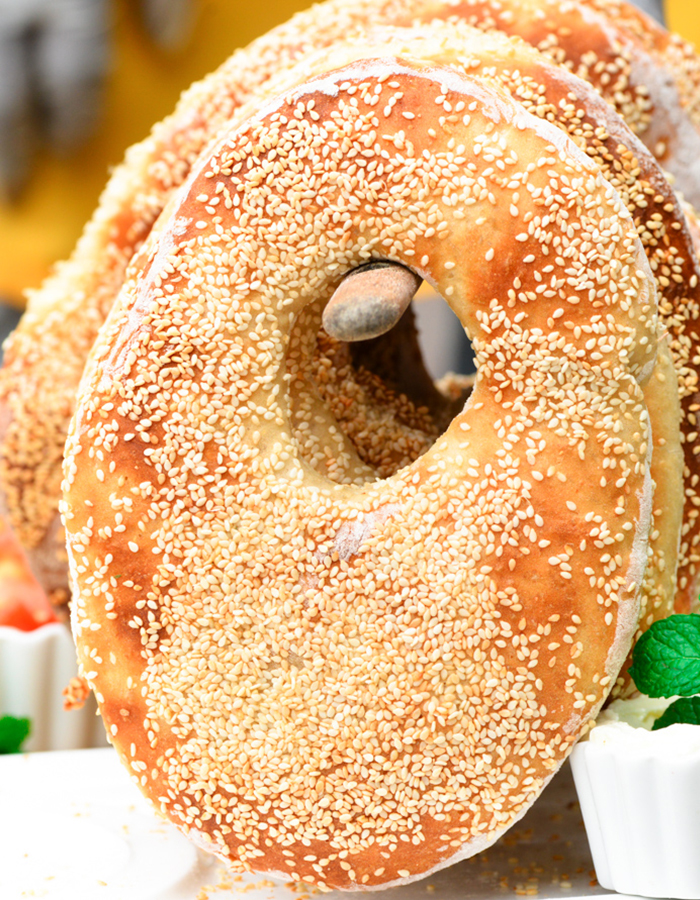
Ingredients you need to make Kaak:
- Flour: You need all-purpose flour.
- Yeast: Use instant yeast, so you can integrate it right in the dough without proofing it with water first.
- Sugar: Use the mentioned amount to add a hint of sweetness to achieve the desired kaak flavor.
- Water: Water should be lukewarm and never boiling or hot; hot water will kill the yeast, and this will ensure that your kaak won’t rise.
- Salt: Plays a role in tightening the gluten structure, it supports the dough holding good volume, but don’t be tempted to add more than the mentioned amount.
- Sesame Seeds: Add such an agreeable nutty flavor.
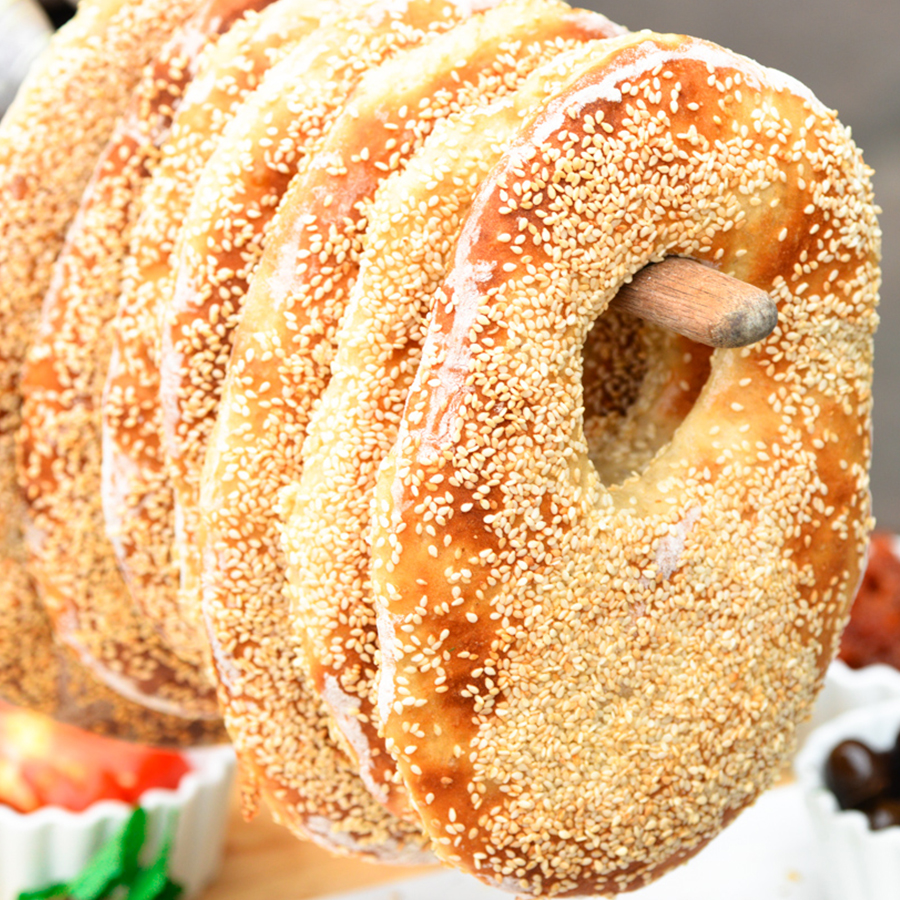
And now let’s get started, but please before you dig into the recipe, consider these tips
- I prefer to knead the dough by hand – old school – but if you like you can knead it with a hand mixer fitted with a dough hook.
- Make sure to check the expiration date on the packet of the active dry yeast to ensure that it is active enough to use.
- After shaping the dough, it should be given a second rise before baking, this will allow the yeast to activate better while baking, resulting a better flavor and texture.
- You need to make a glaze composed of flour, oil, salt and water; without the glaze, the sesame seeds will not stick to the bread, besides, the glaze gives the kaak that shiny golden look.
- Bake the dough at high temperature to have a crusty delicious bread. The warmer the temperature, the more active the yeast will be and quicker the dough rises when baking.
- Like all bread, kaak tastes best the day it is made, but if you need to freeze it, shave a minute of the cooking time, so they won’t get browned when you reheat.
- Watch the video, I provided in this recipe, to make it easier to understand, and now let’s get started!
In a large ceramic bowl, mix the flour, salt, yeast and sugar. Add the luke-warm water and combine all the ingredients with your hands. (You may need to add more water than the called for. The amount of moisture in the flour determines how much you need to add). When the mixture starts coming together, knead it thoroughly and push your hands curving your fingers over the dough, getting a malleable dough. Cover with a kitchen towel and set aside for 1 hour to double in size.
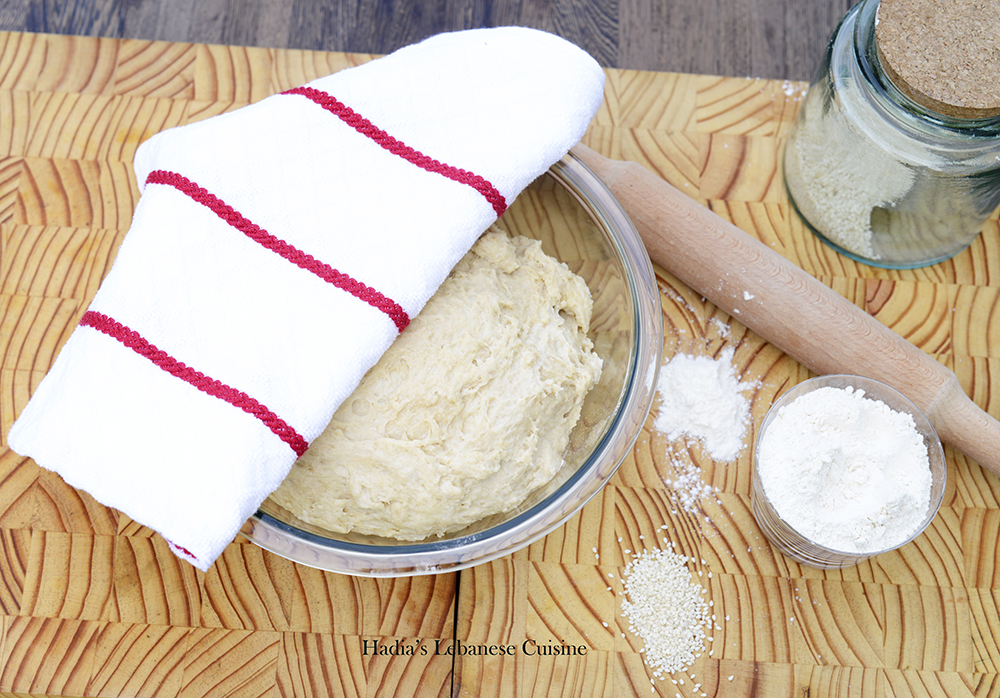
When the dough has doubled in size, sprinkle some flour on a counter top and divide the dough to nine equal portions.
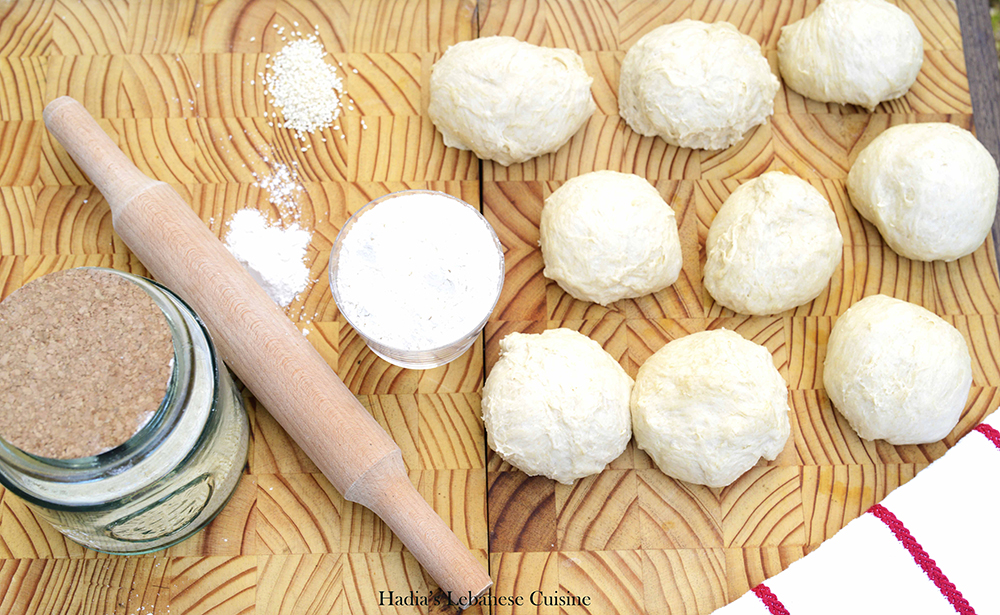
Place one dough at a time over the floured surface and stretch it with a rolling pin; roll it to a round circle about 20 cm/8 inches in diameter and about 1.5 cm ½ inch thick.
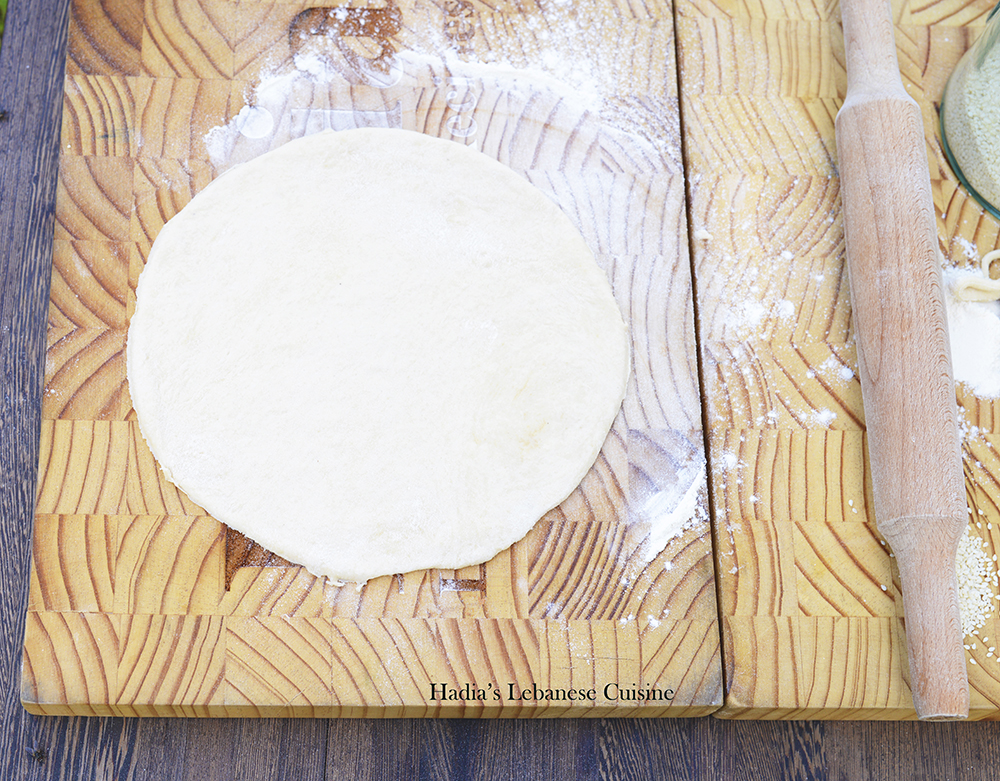
Using a 10 cm/4 inches round cookie cutter, create a hole close to the upper edge.
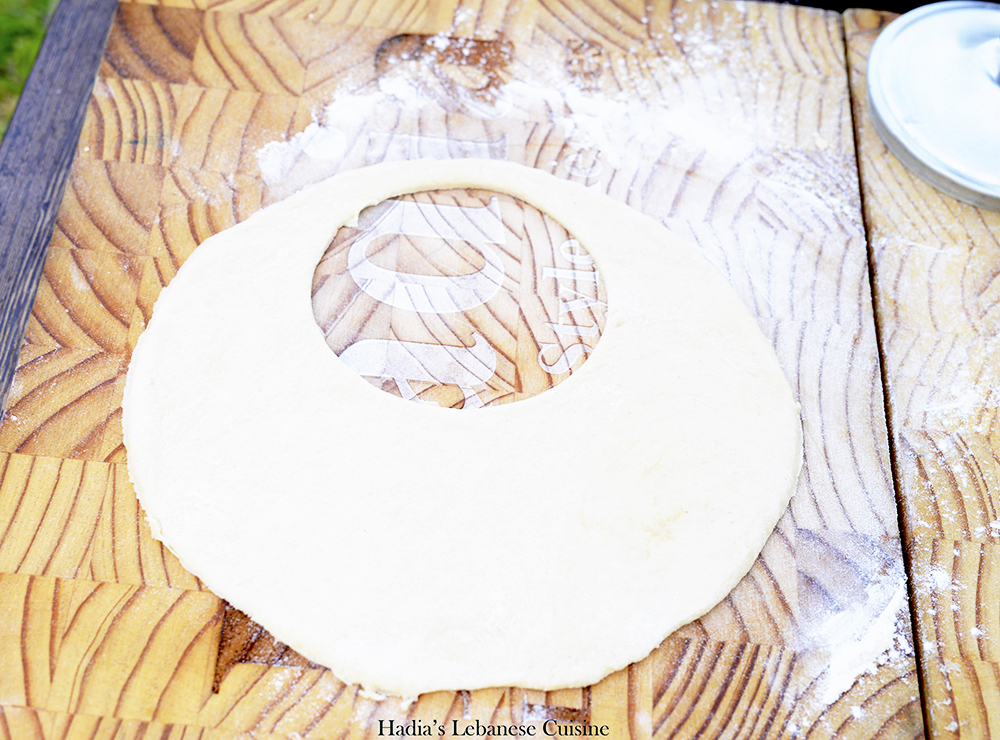
Place the round dough on a parchment-lined sheet or silicon mat (you need to transfer it delicately to the sheet to maintain its form). Using a brush, delicately, brush the surface of the kaak with the prepared glaze. Generously sprinkle sesame seeds, and delicately tap the bread with your hands, helping the sesame seeds stick to the bread. Set aside for 30 minutes for a second rise, this will help develops lighter and fluffier kaak!
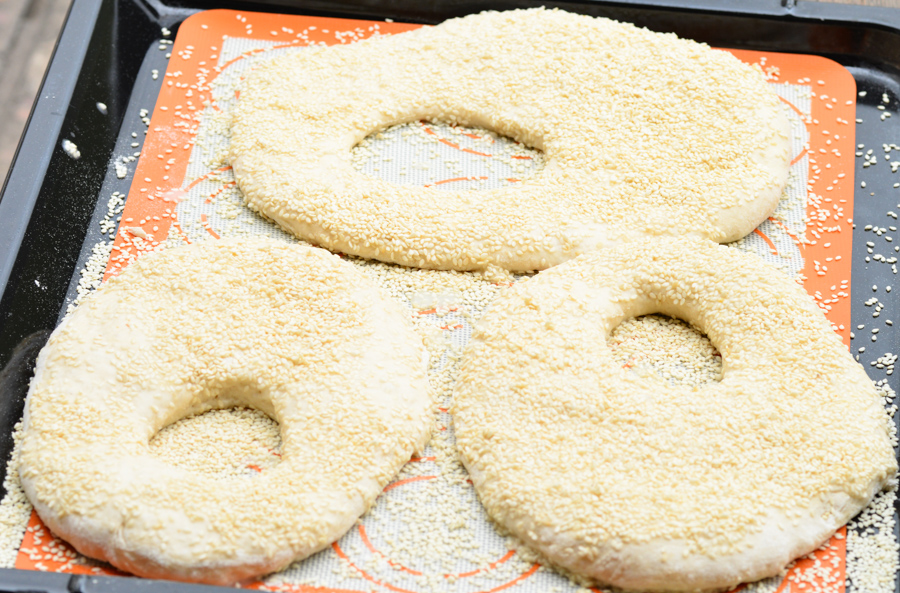
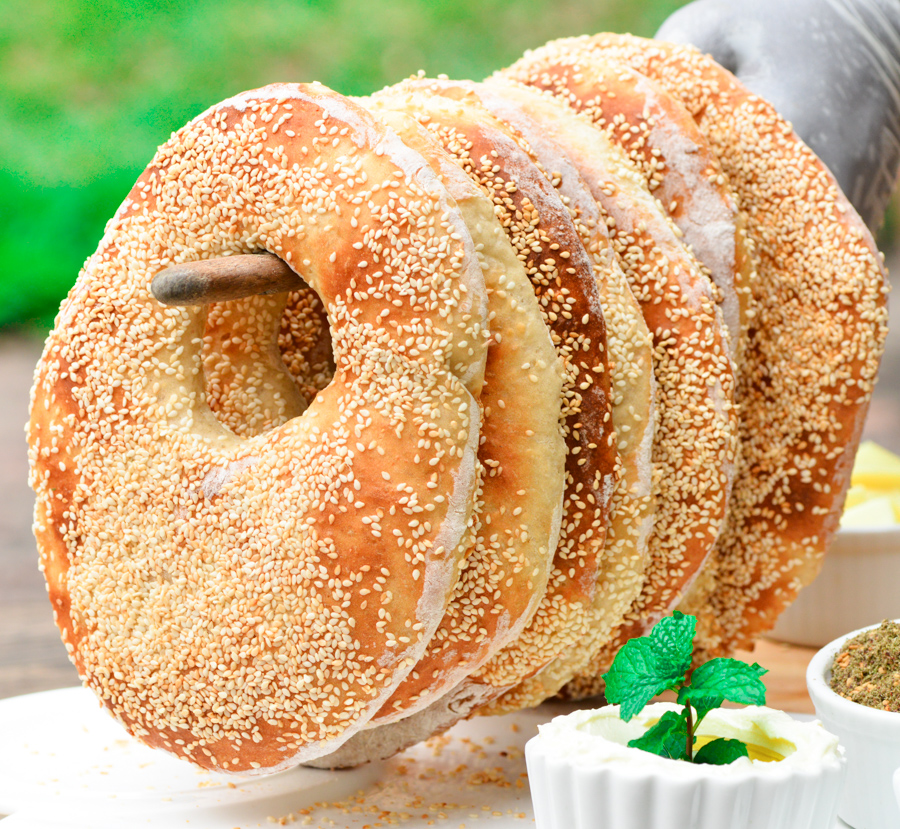
Bake this Lebanese classic, nothing beats the aroma of kaak baking in the oven! Follow the instructions, it is simple and nearly fail-proof!
Kaak/ Kaak Alasreya/ Lebanese Street Bread
Description
Ingredients
- 1 kg / 2 lb. 4 oz. all-purpose flour
- 1/2 teaspoon salt
- 1/3 cup/ 100 g. /3.5 oz. sugar
- 2 cups luke-warm water
- 1 cup white sesame seeds
- 2 tablespoons instant yeast
- For the filling:
- Zaatar or any spreadable cheese, dip or whatever your heart desire, this is a versatile bread, and it goes well with any dip
For the glaze:
- 1 cup water
- 2 tablespoons flour
- 2 tablespoons olive oil
- A pinch of salt
Instructions
- First off, check the expiration date on the package of yeast.
- In a large ceramic bowl, mix the flour, salt, yeast and sugar. Add the luke-warm water and combine all the ingredients with your hands. (You may need to add more water than the called for. The amount of moisture in the flour determines how much you need to add.
- When the mixture starts coming together, knead it thoroughly and push your hands curving your fingers over the dough, getting a malleable dough.
- Cover with a kitchen towel and set aside for 1 hour to double in size.
To roll and bake:
- Preheat the oven to 230 °C/ 450°F.
- Place the rack in the lower third, just below center of the oven.
- Prepare the glaze: Combine the glaze ingredients in a saucepan, whisk and bring to a boil, it should have the consistancy of thick cream. Remove from the heat and set aside.
- When the dough has doubled in size, sprinkle some flour on a counter top and divide the dough to nine equal portions.
- Place one of the dough over the floured surface and stretch it with a rolling pin and roll it to a round circle about 20 cm/8 inches in diameter and about 1.5 cm ½ inch thick. Using a 10 cm/4 inches round cookie cutter, create a hole close to the upper edge.
- Place the round dough on a parchment-lined baking sheet, or silicone baking mat (you need to transfer it delicately to the sheet to maintain its form).
- Using a brush, delicately, brush the surface of the kaak with the prepared glaze. Generously sprinkle sesame seeds, and delicately tap the bread with your hands, helping the sesame seeds stick to the bread. Set aside for 30 minutes for a second rise, this will allow the yeast to activate better while baking, resulting a better flavor and texture.
- Bake until the dough is puffed and golden in color. It takes about 7-10 minutes. Keep an eye on your oven!
- Remove from the oven and once cool enough to handle, create a small hole in the center of the kaaki and add some zaatar. Shake a bit and enjoy warm. Repeat with the remaining dough! How delicious!
Video
Notes
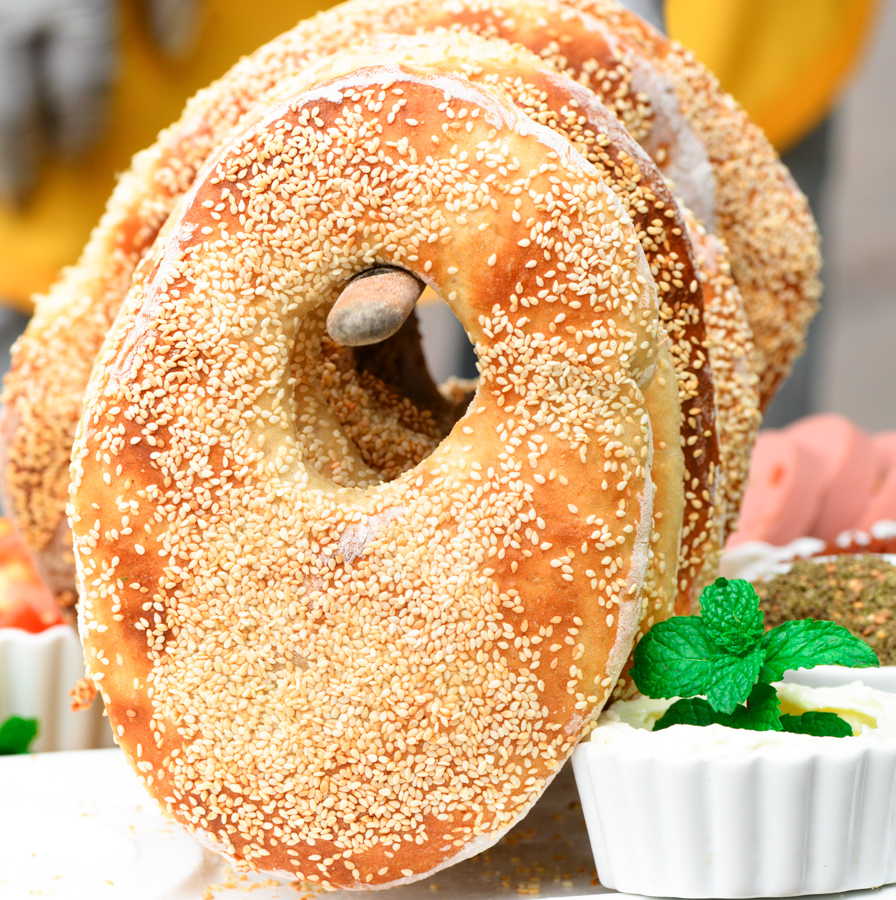 The recipe for the “Kaak alasreya/ Kaak/ Lebanese Street Bread” was posted on July, 2015, photos and text were updated on September 2020.
You might like to learn about Kaleeta/ North Lebanese Flat Kaak
The recipe for the “Kaak alasreya/ Kaak/ Lebanese Street Bread” was posted on July, 2015, photos and text were updated on September 2020.
You might like to learn about Kaleeta/ North Lebanese Flat Kaak
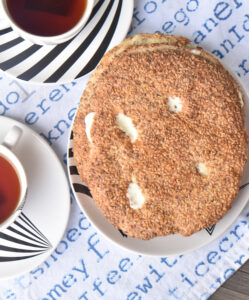 You might also like to check the recipe of the Lebanese Sweet Kaak.
You might also like to check the recipe of the Lebanese Sweet Kaak.
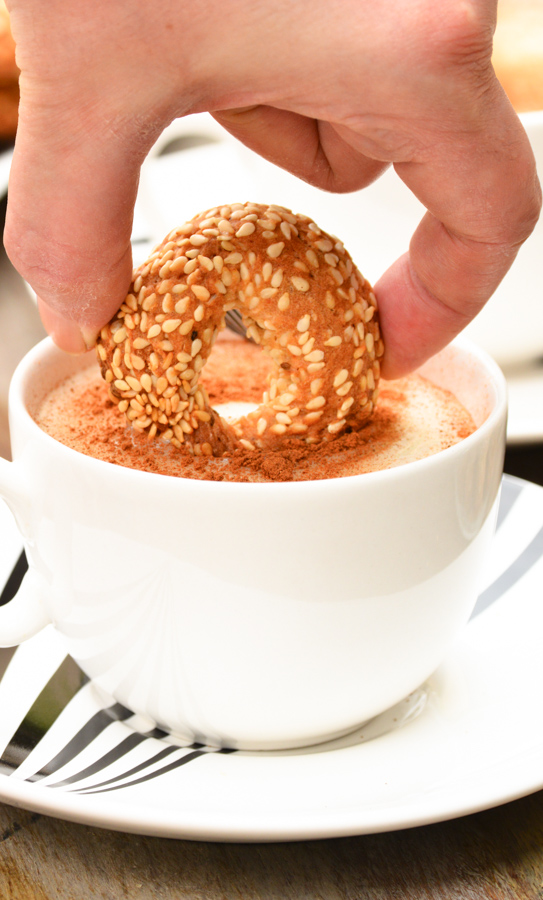 If you make this recipe, share your pictures on Facebook! I would love to see your creations!Hashtag them #Hadia's Lebanese Cuisine
If you make this recipe, share your pictures on Facebook! I would love to see your creations!Hashtag them #Hadia's Lebanese Cuisine



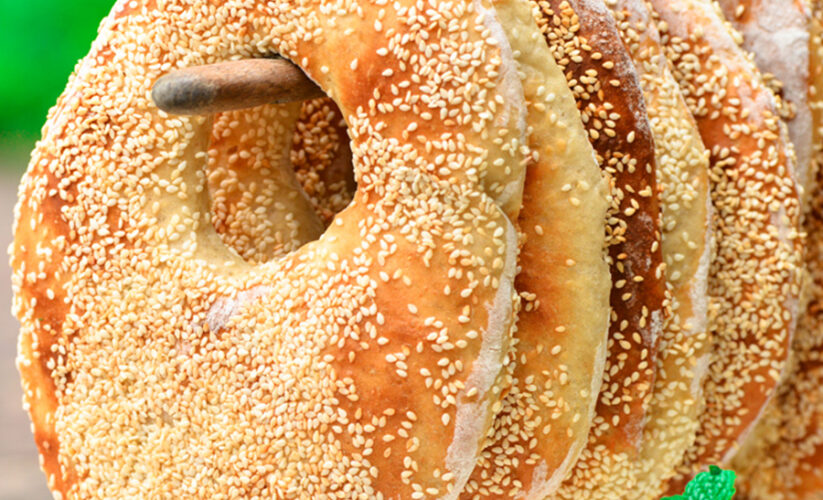




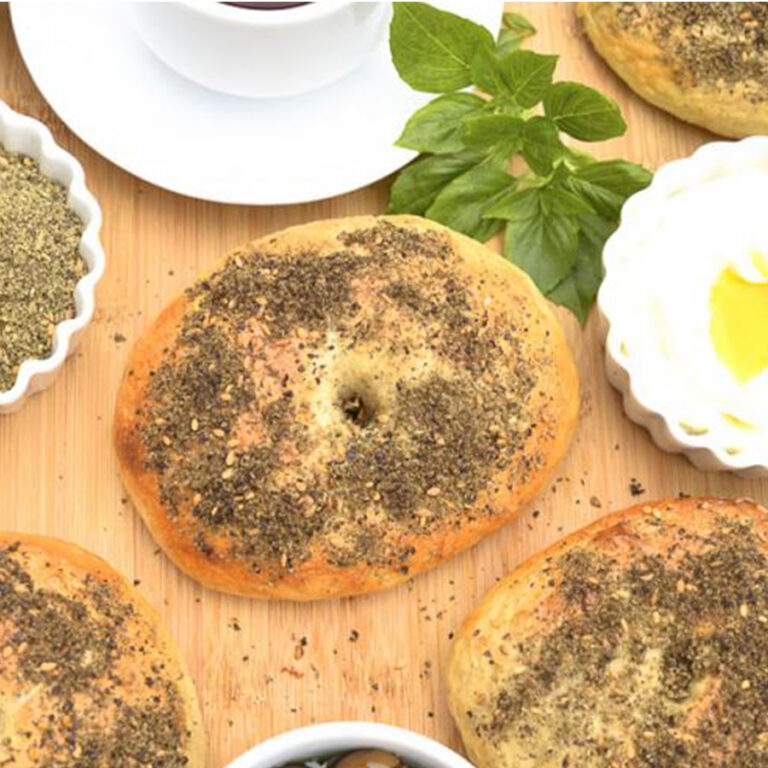
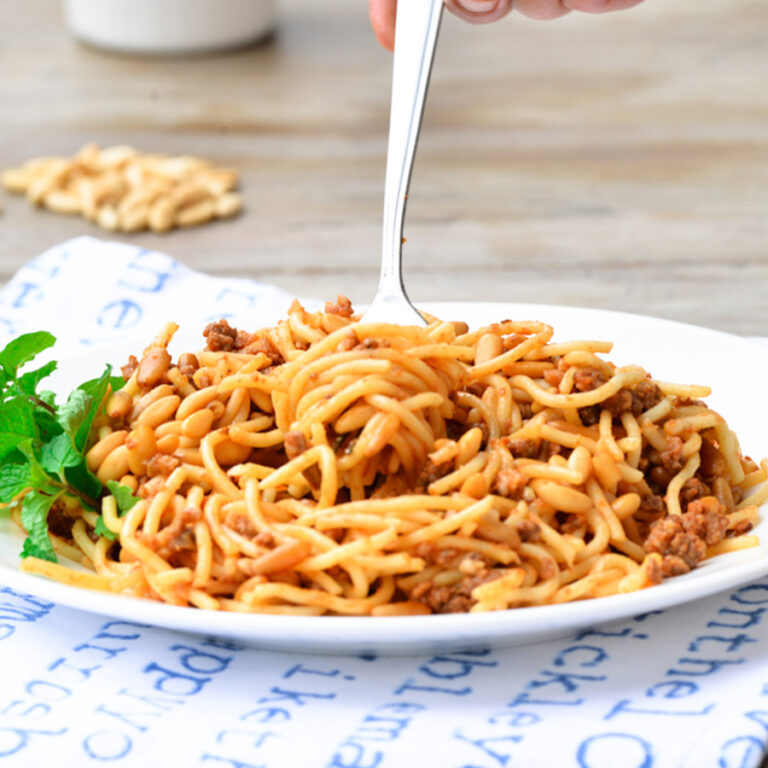
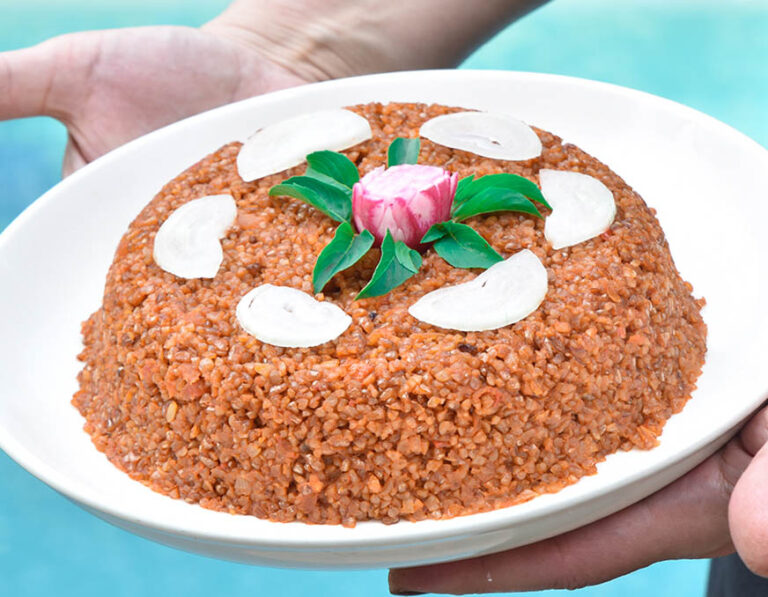
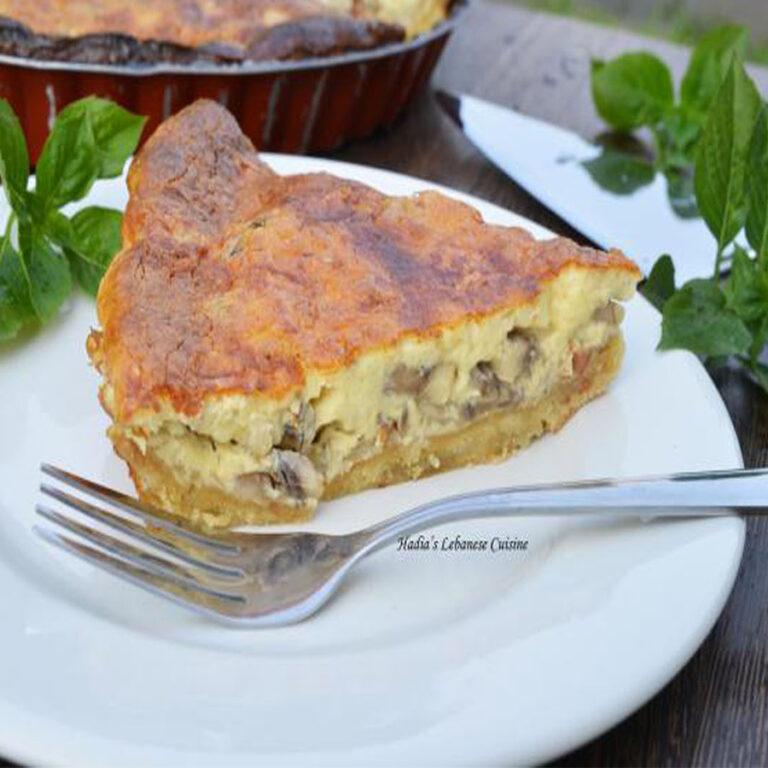


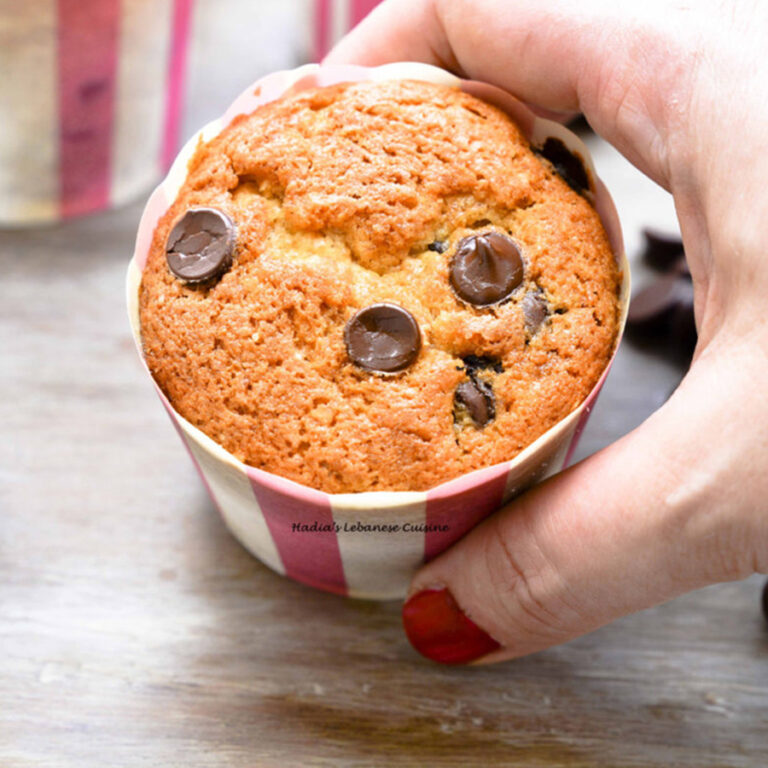
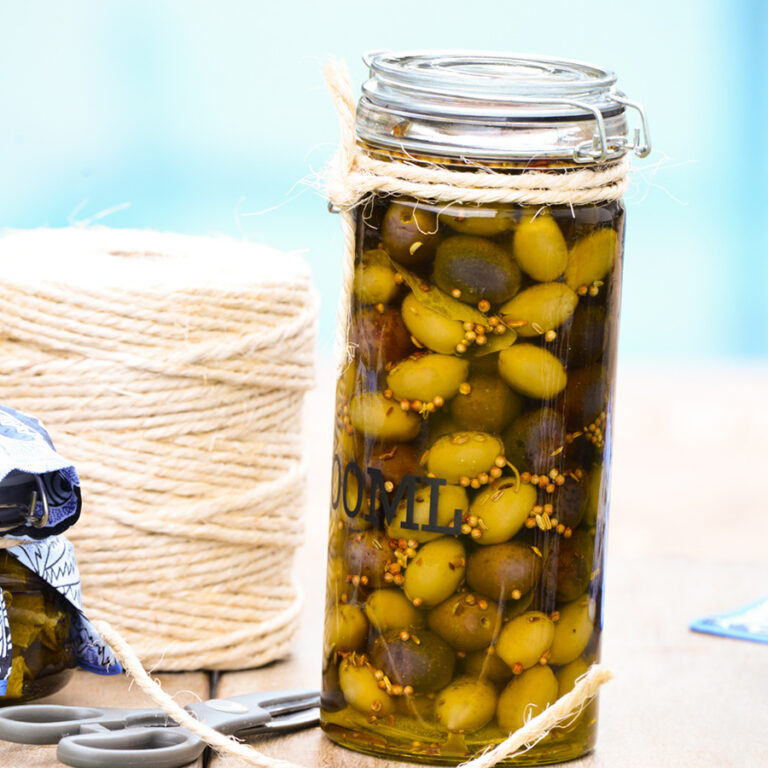
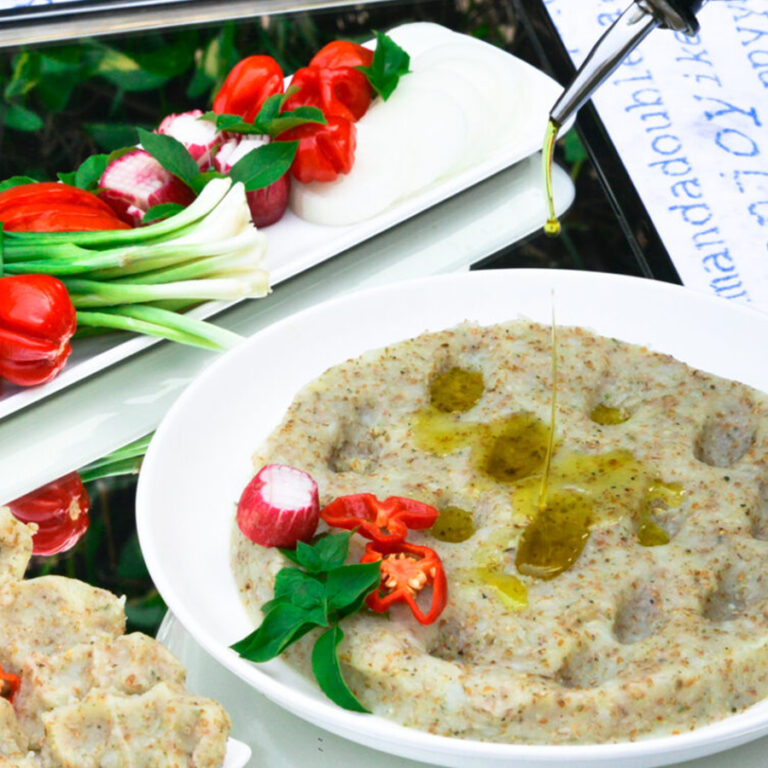



















18 Comments
Hi im going to try ur reciepe are u sure its 11 tablespoons or is it a typing error
Hi Mervat, it is 1+ 1/2 tablespoons active dry yeast! Let me know how it works for you!
Thank you for the recipe. All looked well until end of baking, kaak came out too dry and didn’t rise and sesame didn’t hold at all. Please advise
Made these with son. They were great. Turns out amazing even for my neigjbor who never had kaak. They taste as the ones I used to have at Al Manara in Beirut. Thanks a lot for the recipe. Love them and your website.
Hello! Thank you for the recipe 🙂 Can I just ask you how many Kaaks does this recipe make? around 10 ?
Hi lady
1- why you mix the salt and yeast together
2- for the oven heat is it upper and lower together ON
3- can I freeze it for later
Thanks
Hi lady
I have made the kaaek today with high protein flour it came out delicious
Thanks a lot
Hi again Hadia. If I were to use Za’atar as a filing, would I slice the bread in half to open it up and then sprinkle Olive Oil and then the Za’atar? Thanks so much
Hi Hadia
How long should I knead the dough for? Thanks so much for your time and beautiful recipes!
Hi Hadia,
It’s difficult to find active dry yeast here in australia, would normal dry yeast be a suitable substitute?
Thank you
Kindest regards
Reet
Hi Hadia
Is it the same kaak for the lebanee’s knafeh
Thank you